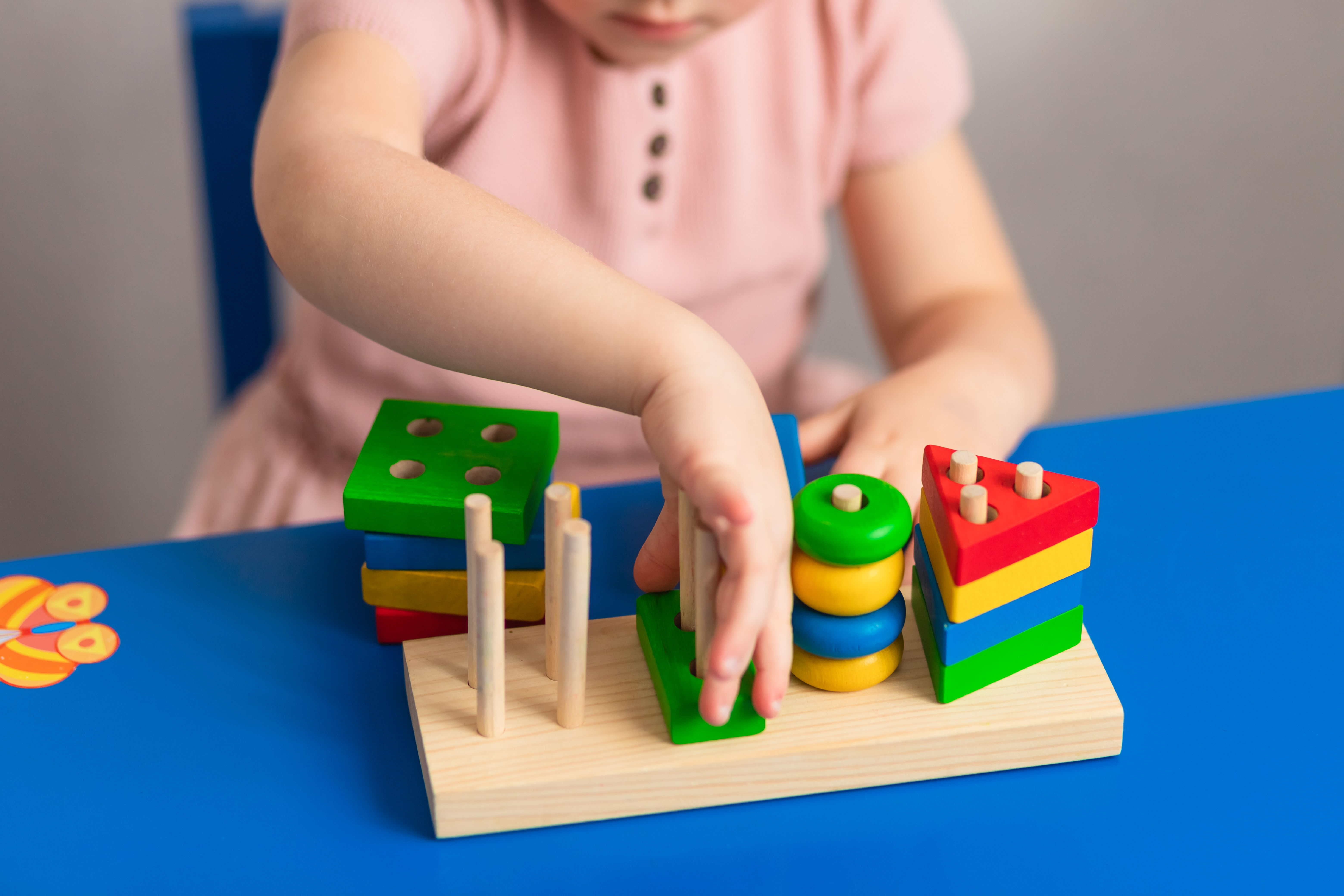If you’ve ever participated in any kind of educational discourse in the UK, you’ve most likely heard about Jean Piaget and his work in the area of cognitive development. He’s known to many as a pioneer of developmental psychology, with his insights remaining a cornerstone across borders and generations. Studies and research conducted by Piaget underpin a lot of current pedagogical practices. The four stages of cognitive development are the theory for which he is most known and celebrated. It provides tools for educators, helping them to create effective teaching strategies and nurture learners as their brains develop. In this article, we’re covering the philosophy behind his theory, the basics of each of the four stages, what insight they can provide educators, and how it holds up against—or works in conjunction with—more recent research and findings.
The Core Philosophy Behind Piaget's Cognitive Development Theory
At the heart of Jean Piaget's theory lies a simple yet revolutionary belief: children are not passive recipients in the learning process. Instead, they contribute in many different ways to the building of knowledge. For Piaget, the classroom wasn't just a space where information was transmitted from teacher to student, but rather a venue for young minds to actively construct understanding, brick by brick—guided by teachers. To understand this, imagine a child not as an empty vessel (a fairly common allegory in education) but as an architect, using bricks of experience to construct their own library of knowledge. Piaget's child is inquisitive, active, and ever-evolving. They don’t just absorb information; they assimilate and mould it through ongoing interactions with the world around them. Their environment isn't just a backdrop but a key player in this process. This ethos, which places the learner at the heart of the educational process, continues to feature throughout modern pedagogy. More recent research has added nuance to it, which will be discussed later in the article. It also ties in with a broader range of constructivist theories.
The Four Stages of Cognitive Development
There are four stages to Piaget’s theory, which we’re unpacking below. Timeframes and milestones are not set in stone but a general suggestion—each child is different and will progress at their own pace.
Sensorimotor Stage (Birth to Two Years)
Some of the most profound wonders of human growth take place in the first two years of life. As any parent or caregiver can attest, watching a child progress from an infant’s limited grasp of the world to a toddler's curiosity is remarkable. It's within this window that Piaget placed his first stage of cognitive development: the Sensorimotor stage. Senses and Actions A very young child's world is tactile and sensory. They don't just observe their surroundings; they touch, taste, hear, see, and experiment with everything within reach. Their understanding of the world is directly tied to their immediate sensory experiences and motor activities. Key Milestones Among the most notable achievements in this stage is the 'object permanence' development. It's the understanding that objects continue to exist even when out of sight. If you’ve ever played peek-a-boo with an infant, you've witnessed this revelation in real-time. Another characteristic is trial-and-error exploration. Before words shape their world, actions do. They might drop a toy repeatedly, not to test a caregiver's patience, but to understand cause and effect. A Note for Educators and Caregivers This stage is a gentle reminder of the importance of a stimulating environment. Offering diverse sensory experiences—from textured toys to interactive play—is crucial for an infant’s cognitive development. The environment should be safe for exploration, but interesting enough to challenge and engage. Patience is paramount here. Repetitive actions like dropping toys aren't acts of defiance but attempts to understand the world.

Preoperational Stage (2 to 7 years)
When they enter the age bracket of two to seven years (or thereabouts), children embark on what Jean Piaget dubbed the 'Preoperational Stage'. This stage includes the development of imagination and abstract thinking, with new ways of viewing the world. Cognitive Adventure These years see children move from the tangible actions of infancy to the realm of the abstract. However, their thought processes are still relatively intuitive and not strictly bound by logic. It’s a period where every day becomes an adventure, and every room or object might become part of a pretend playscape. Characteristics of the Stage
- Egocentrism
Children in this stage often find it hard to see a situation from someone else’s viewpoint. This isn’t an indication of fundamental selfishness; it's just that their cognitive development means that currently they perceive the world primarily from their perspective. Ever wondered why a child might hide behind a thin pole in a game of hide-and-seek, thinking they're entirely concealed? That’s egocentrism at play. They literally can’t imagine your view of the situation.
- Animism
The line between life and inanimate is wonderfully blurred. Trees might have feelings, and toys might get upset. This is animism in action, attributing life-like qualities to non-living objects.
- Symbolic play
A simple cardboard box in a UK classroom can be a spaceship, a pirate ship, or a castle, showcasing the onset of symbolic thought. Symbolic play, in which children use objects, actions, or ideas to represent other objects, actions, or ideas, uses and develops imagination and creativity. A Note for Educators and Caregivers Helping children to navigate the preoperational stage requires both understanding and strategy. Teachers and caregivers can engage their vivid imaginations with creative storytelling, role-playing, and arts. While their reasoning might not always align with adult logic, it’s important to appreciate and nurture their unique thinking. Pose problems, ask open-ended questions, and let them explore their own thoughts. This is a foundation of critical thinking.

Concrete Operational Stage (7 to 11 years)
Most children will experience a significant cognitive shift as they approach the age of seven. As they enter Piaget’s 'concrete operational stage', the world becomes more tangible. Their thoughts are more orderly, but still rooted in concrete facts. A Logical Leap At this juncture, children begin to develop a more structured and systematic way of thinking. However, they largely remain tethered to the present, drawing from actual experiences and concrete events rather than abstract concepts—a hypothetical 'what if?' is still largely beyond their reach. Key Cognitive Milestones
- Decentering
The world isn’t just about them anymore. They start to gain the ability to perceive situations from multiple perspectives, a process called decentering. If they play football in the schoolyard, they can now appreciate their role and that of their teammates and opponents. Relationships can deepen as they empathise with friends and acquaintances.
- Reversibility
Actions can now be mentally reversed. If they fold a piece of paper, they understand it can be unfolded back to its original shape.
- Conservation
This is when children realise that quantity doesn’t change with the alteration of container shape. The amount remains consistent whether it's water poured from a tall, thin glass to a short, wide one or a ball of clay being reshaped. Although it sounds small, this is a big cognitive leap! A Note for Educators and Caregivers The concrete operational stage is golden for hands-on, experiential learning. Children in this stage thrive with tangible examples and practical applications. Math problems can be explained with natural objects; science can be taught through simple experiments. Field trips, laboratory sessions, and interactive classroom activities become incredibly impactful. It's about making the abstract concrete and, in doing so, solidifying foundational knowledge.

Formal Operational Stage (12 Years and Above)
The transition from primary to secondary school is a milestone in a child’s educational journey, where their cognitive capabilities develop significantly. As they move through the teen years toward adulthood, more abstract thought develops and sharpens. The Advent of Abstract Thought Once limited to concrete experiences and tangible examples, students now begin to entertain hypothetical scenarios. This might include pondering complex algebraic problems, dissecting Shakespearean soliloquies, or grappling with moral dilemmas. Put simply, their cognitive horizons are expanding. Key Cognitive Advancements There are two significant advancements that stand out during this stage:
- Hypothetical reasoning
"What if?" becomes a frequently visited question. Adolescents can hypothesise potential outcomes and mentally play them out, a skill that’s immensely beneficial for subjects like mathematics and the sciences.
- Deductive logic
During this stage, youngsters develop the ability to start with a general principle and deducing specifics. No longer is their reasoning confined to the here and now. It’s more forward-thinking and anticipatory. Challenges and Opportunities in Secondary Education Secondary teachers have the challenging task of guiding learners through their growing cognitive capability. The stage is not without its hurdles! Over-reliance on abstract thought can sometimes lead to over-analysis or "paralysis by analysis" or overthinking. Students might grapple with self-identity, societal expectations, and the pressures of impending adulthood. However, the formal operational stage is also an immensely rewarding period. Educators have the chance to mould critical thinkers, encourage debates, stimulate creative expression, and foster a love for lifelong learning. Recognising the various characteristics and milestones of this stage equips them to tailor lessons and strategies to their students. Students in this stage are not just absorbing knowledge but are actively engaging with it, challenging it, and making it their own. It's a time of growth, exploration, and immense potential.

Modern Reflections and Critiques of Piaget’s Theories
Jean Piaget's stages of cognitive development paved the way for a nuanced understanding of children's mental growth. And they are still very widely used today! However, as with many pioneering works, his theory hasn't been exempt from critique and reinterpretation. Educators should be familiar with more contemporary knowledge to craft a balanced, informed teaching approach.
- Rigidity of stages
One critique of Piaget's theory is the rigidity of the developmental stages. Some researchers argue that, as Piaget suggested, children might not progress through these stages uniformly. For instance, a child might exhibit characteristics of the concrete operational stage while still preoperational. This does not debunk the theory of stages but adds nuance to it and allows educators to take developmental variations into account.
- Potential underestimation
Some modern educational psychologists suggest that Piaget underestimated children's cognitive abilities. Research has shown that children can display skills and understanding typically associated with an older age group under the right conditions. This ties in with the rigidity issue outlined above.
- Cultural and social considerations
Piaget's research was primarily based on observations of Swiss children, leading to concerns about its applicability across diverse cultural and socio-economic backgrounds. In the UK’s multicultural environment, this is noteworthy for educators.
- Neuroscientific advances
With the advent of technologies like MRI scans, we've gained deeper insight into the developing brain. Some of these complement, and others challenge Piagetian theory. This journal article, for example, discusses “neo-piagetian” theories of adult cognitive development, building on his work.
- Connection to other theorists
Piaget's work undoubtedly laid a foundation, but subsequent theorists such as Vygotsky, with his emphasis on social interaction, and Bruner, with his spiral curriculum, have provided additional dimensions to our understanding of cognitive development. Modern theories often draw from Piaget but integrate newer findings. For instance, we now understand that cognitive development might be more fluid than staged or that external factors like socioeconomic status can play a more significant role than previously thought. Educators must understand both the foundational works and the modern critiques for a holistic, relevant approach.
In Summary
Jean Piaget charted a map of children’s cognitive growth that significantly improved previous theories and thinking. His work remains an essential tool for educators in the UK and across the globe. The four stages of cognitive development are still influential —an impressive legacy! However, the field of education is in constant evolution. With new research and technological advances, we continually enhance our understanding of most topics. Cognitive development is no exception. Piaget’s core philosophy—that children actively participate in their learning journey—stands strong, and many of the details of the journey he laid out are still relevant, with nuance and new understanding added by contemporary psychologists. Educators need a balanced perspective: lean into Piaget’s foundational insights but always stay attuned to what’s new in educational research. Take a look at our range of CPD courses to continue your own learning journey and learn more about this and other useful topics for teachers.
Further Reading & Resources
- The Language and Thought of the Child by Jean Piaget - Piaget’s own words map the journey of children’s cognitive growth.
- Piaget's Theory of Cognitive and Affective Development by Barry J. Wadsworth - An accessible interpretation of Piaget's core ideas and their relevance to educators.
- How Children Think and Learn: The Social Contexts of Cognitive Development by David Wood - Positioning Piaget’s theory within broader societal contexts.

